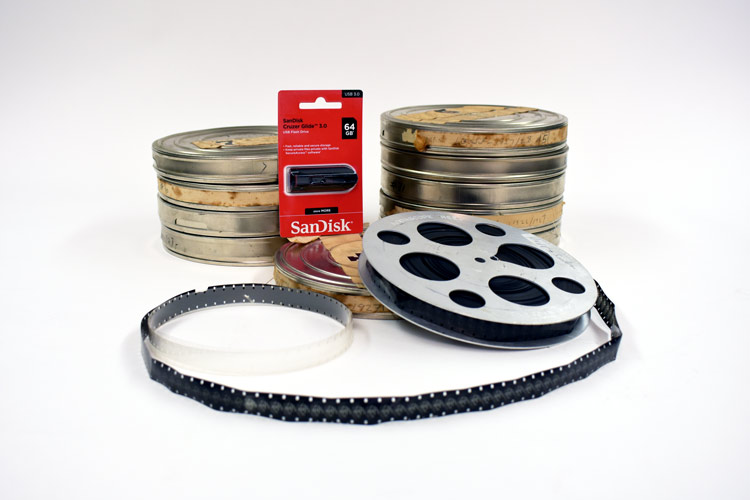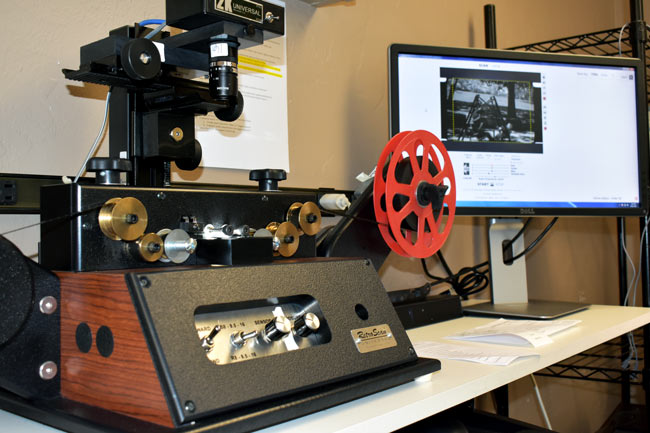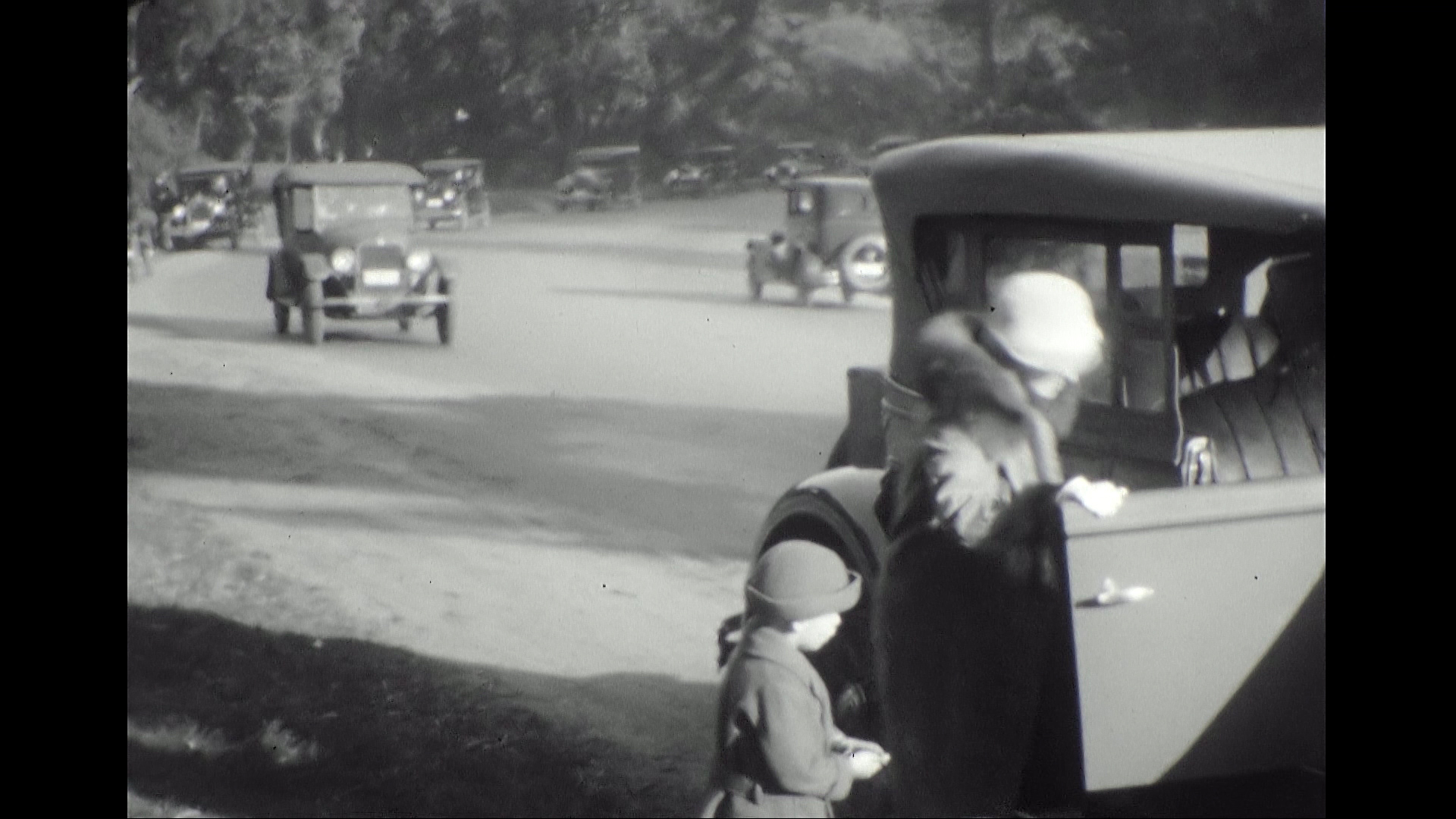100 Year Old 16mm Film Preserved and Transferred to HD mp4
Customer’s 1920s Film Reels Converted to HD Digital mp4 Files
AV Workshop customers Carolyn and Lyle O. dropped off their 100 year old film reels to be transferred to Digital mp4 Files. This film was extremely cherished by Carolyn and Lyle. While AV has worked with film from the 1920s several times before, each set of reels this old presents its own challenges. Luckily, AV knows how to handle this task in order to take care of your film and achieve the greatest results!
Our Film Transfer Process:
1) Organize / Clean / Repair
We organize and label your reels either by date or in the order requested. AV then cleans all the film with an anti-static solvent to rid the film of any dust, bacteria, dirt, and other contaminants. This allows for a sharp image and also ensures the film runs as smoothly as possible through our scanners. Also, we repair faulty splices and add new leader if necessary.
2) Scan
All AV Workshop Film Transfers are done in-house with the new RetroScan Universal (near 3K) Mach 1 Film Scanner. Every single film frame is scanned directly with the Mach-I camera sensor at 2048 x 1536, which is approx 3K resolution! The enlarged gate on the scanners allow us to access 100% of the film frame. Lastly, the scanners have a bright and cool LED light source which creates rich vibrant colors with zero hot spot and no chance of burning your film.
3) Edit / Enhance
Once the film frames have all been scanned, we create HD movie files at the correct speed / frame rate. While most 8mm films are 16fps, Super 8 are 18fps, you never know until you double check the motion within a given reel. We can export any frame rate from 8fps to 30fps. Next, we import the movies into Adobe Premiere Pro and digitally attach all the reels in order (or organize them as directed), as well as trim any faulty footage such as blank reels, etc.. If a customer orders our Enhanced Film Transfer service, we go through the films scene by scene adjusting / balancing color, brightness / contrast, saturation and shadow detail. Furthermore, if a customer’s films have sound we scan it separately, sync it up, and apply level optimization and noise reduction to it. Finally, a new service we are starting to offer (Grain Reduction / Sharpening) can be applied at the final stage where we remove the grain of the film and apply image sharpening. This is done in multiple passes to achieve the best results!
4) Encoding / Output
Once the films have been Enhanced, we are ready for output. We export your films in High Definition (1920 x 1080p, 50 mb/s) and organize them onto a flash drive. Each file is labeled with your name and reel numbers so they’re easy to navigate! These files can be played just about anywhere (MAC, PC, Smart TV, etc.)
Once the old films were scanned to digital, we enhanced the color, exposure, saturation, shadow detail, and sound in our post production process. As a result, the films were restored and looked their absolute best! Carolyn was so happy with the final product, she decided to bring AV Workshop the rest of her vintage film for transfer to Digital mp4 Files! On top of that, she received all of her original film back cleaned and reconditioned.
Check out some of Carolyn and Lyle’s Film Transfer highlights below!
If you’ve been thinking about transferring some of your old film, there are a few things to look out for!
One of the primary causes of film deterioration is vinegar syndrome. Vinegar syndrome is the breakdown of the acetate base that most film is made from. This breakdown releases a strong vinegar scent and can cause many problems for the film including warping, curling, shrinkage, brittleness, loss of detail, desaturation, and could ultimately make your film impossible to transfer. If you notice a vinegar scent, it’s best to transfer your films sooner than later – as the vinegar vapors can contaminate nearby film and shorten the lifespan of your home movies. Learn More »
Snowflake syndrome is another form of deterioration that can arise with your old film. If you notice mold and mildew (which typically grows in hot, humid, or moist environments) it could affect the appearance of your film. Fortunately, AV Workshop can often remove the mold and mildew with proper cleaning. In the event that all the mold spores cannot be removed, they may appear on your film as snowflakes in the image. If your films continue to be stored in hot and humid conditions, the film can also warp and curl – making it nontransferable or playable. Snowflake syndrome is another reason we recommend transferring your films to digital as soon as possible! Learn More »
Need help organizing your home movies?
If you do not know the contents of your reels and would like to find out, AV offers an option for you! We do not recommend nor provide projectors to preview your films. This is because the risk of damage to your film with these devices is quite high. The risks include burning the film (via the incandescent projector bulbs), the scarcity of projectors / bulbs available, wear and tear to the sprocket holes (which makes the image unstable during transfer), and risk of damaging your film beyond repair. With this in mind, AV Workshop offers the option for a Reference Video. The reference video will display all of your film reels labeled by number on the video. We will provide you with a Reference Log so you can log what is on each reel and inform us of the new order you would like your films to be in. Learn More »
Do you have Film Reels you would like Converted to HD mp4 files?
Check out our Film Transfer page for options and pricing.
Audio Video Workshop
650-369-4366
mail@av-workshop.com
703 Woodside Road, #8
Redwood City, CA 94061









